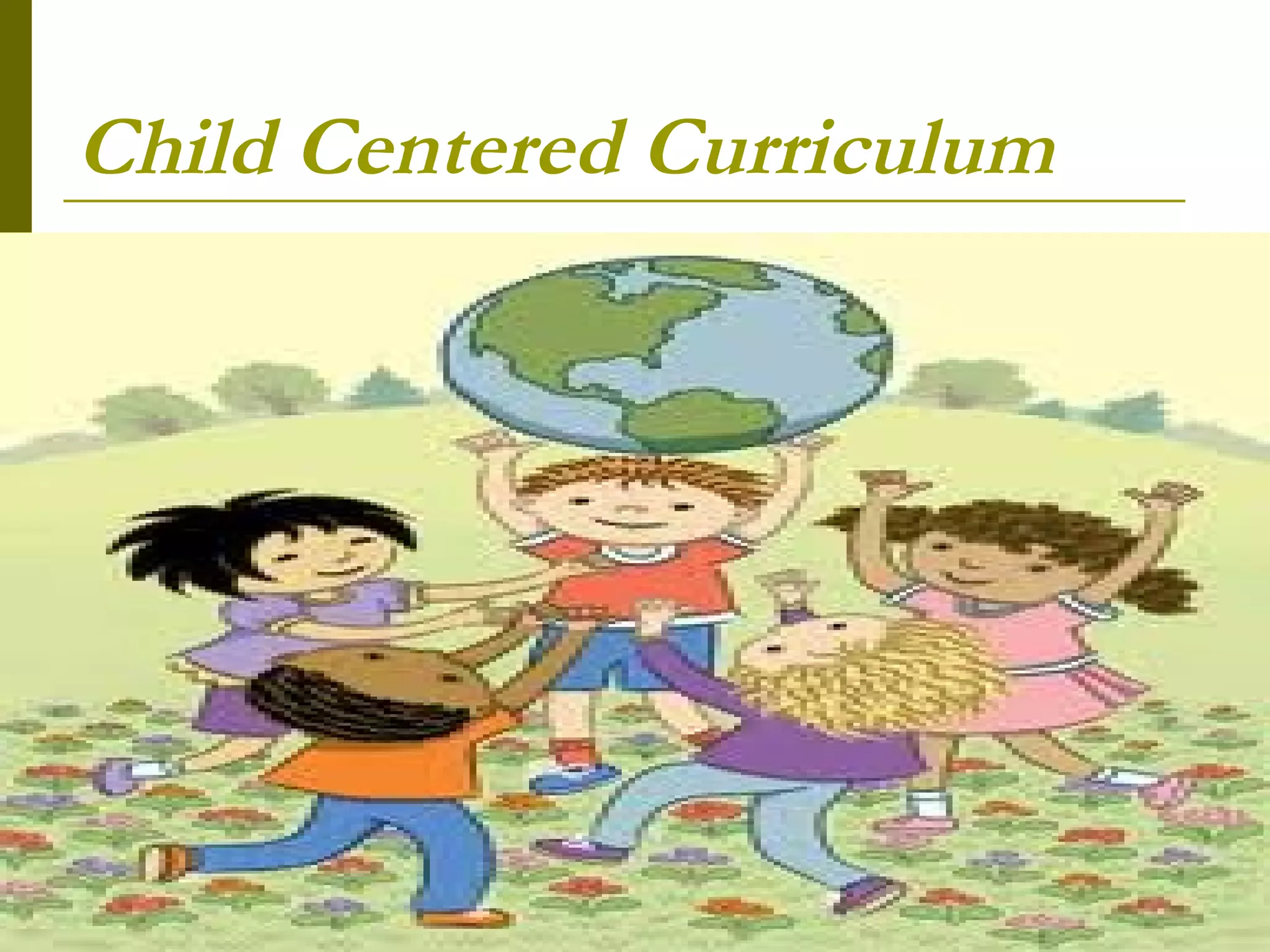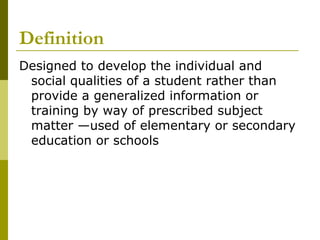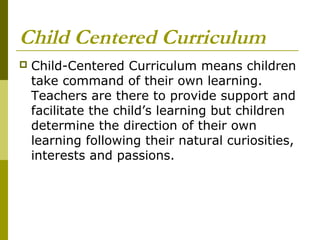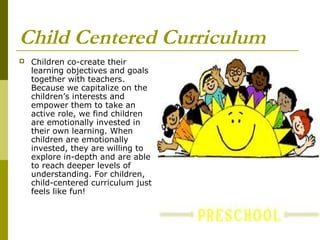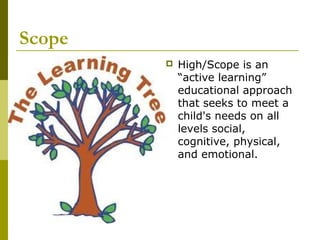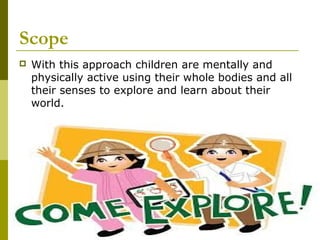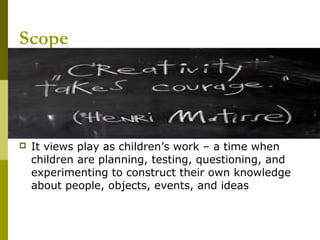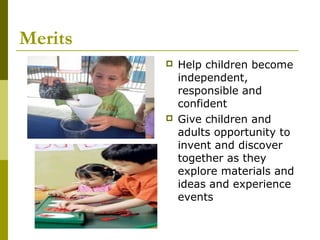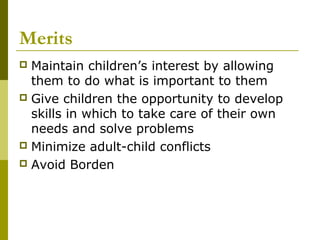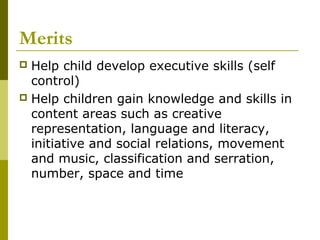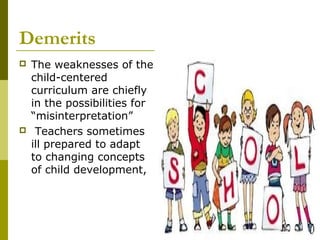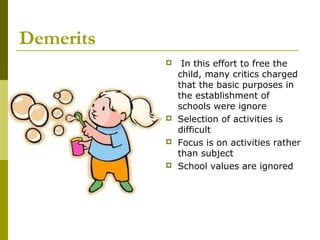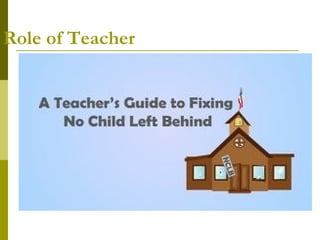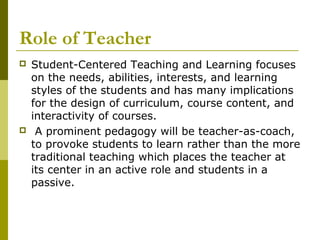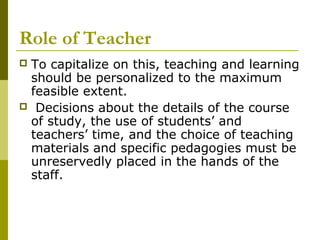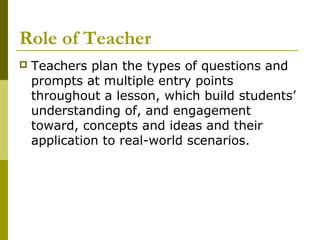A child-centered curriculum focuses on developing students' individual qualities and interests rather than prescribed subjects. Teachers facilitate and support student-led learning as children determine the direction of their learning based on their natural curiosities. Children work with teachers to set learning objectives and are emotionally invested in their learning. The High/Scope educational approach views play as children's work where they construct their own knowledge through exploration and experimentation. A child-centered approach helps children become independent by allowing them to solve problems and develop skills through activities they find important. The teacher's role is to coach students to learn through personalized learning that places decisions in students' hands.
